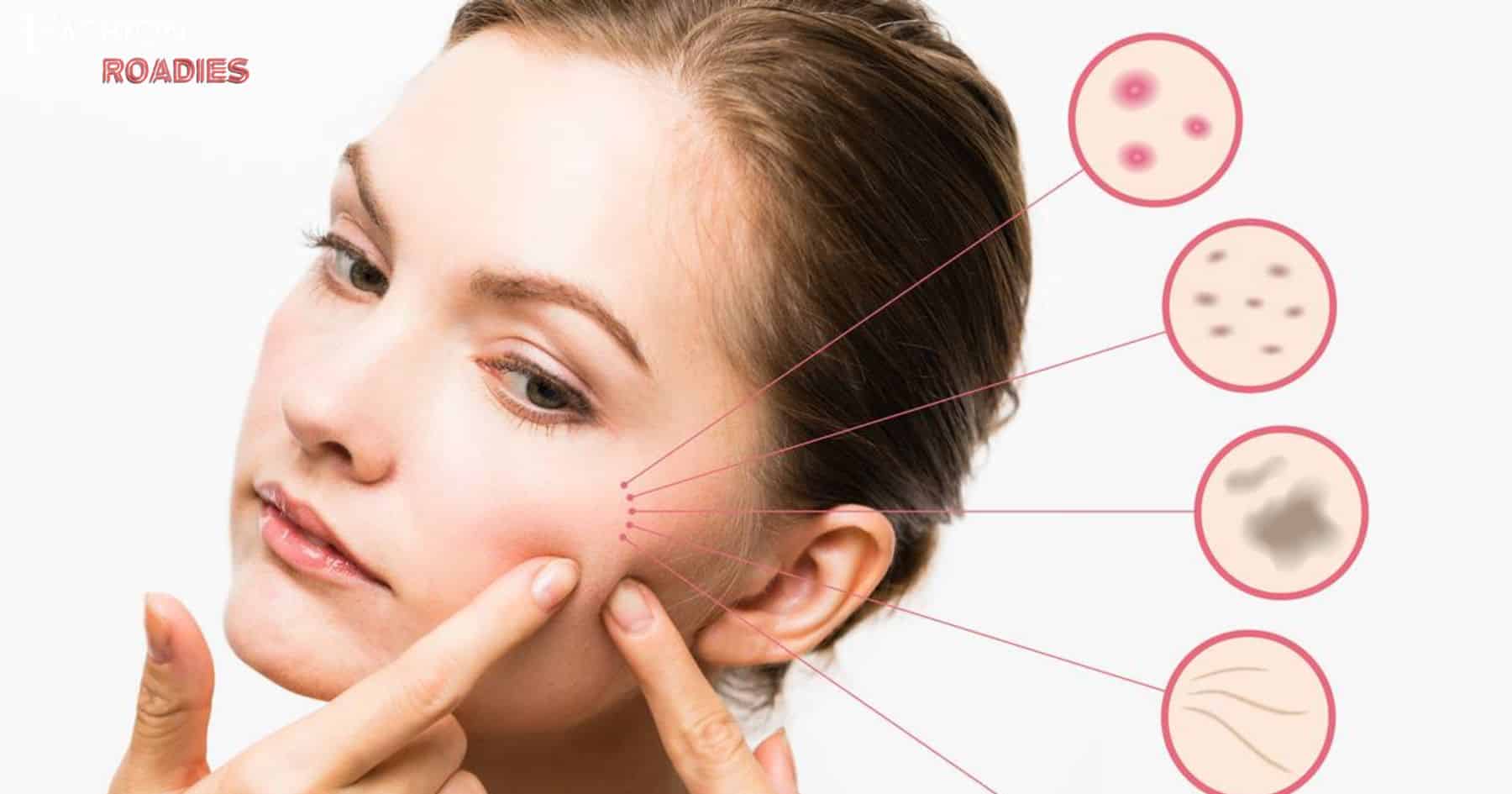Are you tired of dealing with dull, acne-prone or aging skin? Look no further as we delve into the world of face skin care. In this article, we will explore the importance of a skincare routine, help you understand your skin type, and guide you in building a personalized daily regimen. From treating common skin problems to avoiding DIY skincare hacks, we have expert tips to keep your skin healthy, radiant, and belonging to a confident you.
Key Takeaways
- Consistency in a skincare routine is essential for nourishing and protecting the skin.
- Understanding your unique skin type is crucial in selecting the right products and techniques for your skincare routine.
- Building a daily skincare routine should include cleansing, exfoliating, toning, moisturizing, and protecting the skin.
- Seek professional help from dermatologists or skincare professionals for persistent skin issues or specific concerns.
The Importance of a Skincare Routine
The effectiveness of a skincare routine relies on consistently following a set of daily steps to nourish and protect the skin. A skincare routine is essential for maintaining the health and appearance of the face. By following a routine, you can ensure that your skin receives the necessary care it needs to stay hydrated, clear, and youthful. Regular cleansing helps to remove dirt, oil, and impurities from the skin, preventing breakouts and maintaining a healthy complexion. Exfoliating aids in removing dead skin cells and promoting cell turnover, resulting in a smoother and more radiant complexion. Applying moisturizer helps to hydrate the skin and maintain its natural moisture barrier. Additionally, incorporating sunscreen into your routine protects the skin from harmful UV rays, preventing premature aging and reducing the risk of skin cancer. By following a skincare routine, you can achieve and maintain healthy, glowing skin that makes you feel confident and comfortable in your own skin.
Understanding Your Face Skin Type
Each individual has a unique skin type, and understanding yours is crucial in developing an effective skincare routine. Your skin type determines the products and techniques that will work best for you, ensuring healthy and radiant skin. There are four main skin types: normal, oily, dry, and combination. Normal skin is well-balanced, with few imperfections and a healthy glow. Oily skin tends to produce excess sebum, leading to shine and potential breakouts. Dry skin lacks moisture and can feel tight and flaky. Combination skin has both oily and dry areas, with the T-zone (forehead, nose, and chin) being oilier. By identifying your skin type, you can tailor your skincare routine accordingly, using products that address your specific needs. This understanding will help you achieve optimal results, promoting a sense of belonging and confidence in your own skin.
Building a Daily Skincare Routine
Consistently and strategically incorporating a variety of skincare products into your daily routine can help maintain the health and appearance of your skin. Building a daily skincare routine is essential for achieving and maintaining healthy skin. A good skincare routine should include cleansing, exfoliating, toning, moisturizing, and protecting the skin from the sun’s harmful rays. Cleansing removes dirt, oil, and impurities from the skin, while exfoliating helps to slough off dead skin cells and promote cell turnover. Toning helps to balance the skin’s pH levels, and moisturizing keeps the skin hydrated and supple. Lastly, protecting the skin from the sun’s UV rays with sunscreen is vital in preventing premature aging and reducing the risk of skin cancer. By consistently following a skincare routine, you can ensure that your skin stays healthy, radiant, and youthful.
Treating Common Skin Problems
Addressing common skin problems requires identifying the underlying causes, such as excessive oil production or environmental factors, and implementing appropriate treatment methods. To effectively treat these issues, here are four key steps to consider:
- Cleansing: A gentle cleanser helps remove dirt, oil, and impurities without stripping the skin of its natural moisture. Look for cleansing products with ingredients like salicylic acid or benzoyl peroxide to target acne-prone skin.
- Exfoliating: Regular exfoliation helps remove dead skin cells, unclog pores, and promote cell turnover. Opt for chemical exfoliants with ingredients like glycolic acid or lactic acid for a gentle yet effective exfoliation.
- Moisturizing: Hydrating the skin is essential to maintain its moisture balance and prevent dryness or oiliness. Choose a lightweight, non-comedogenic moisturizer that suits your skin type.
- Protecting: Shielding your skin from harmful UV rays is crucial in preventing premature aging and skin damage. Apply a broad-spectrum sunscreen with an SPF of at least 30 every day, even on cloudy days.
DIY Skincare Hacks to Avoid
To ensure the best care for your skin, it is important to avoid relying on DIY skincare hacks, as they often lack scientific evidence and can potentially do more harm than good. While it may be tempting to try home remedies or unconventional methods, it is crucial to prioritize evidence-based skincare practices. DIY skincare hacks, such as using lemon juice as a natural toner or applying toothpaste to treat acne, may seem convenient and cost-effective, but they can actually disrupt the skin’s natural balance and cause irritation or damage. Instead, it is recommended to consult with a dermatologist or skincare professional who can provide personalized advice based on your skin type and concerns. Investing in proven skincare products and following a consistent skincare routine will yield better results and ensure the health and vitality of your skin.
Tips for Healthy and Radiant Skin
The key to achieving healthy and radiant skin lies in following a well-rounded skincare routine that includes proper cleansing, moisturizing, and protecting the skin from harmful UV rays. Here are four essential tips to help you maintain a vibrant complexion:
- Cleanse: Start your skincare routine by gently cleansing your face with a mild cleanser. This will remove dirt, oil, and impurities that can clog your pores and lead to breakouts.
- Moisturize: After cleansing, apply a moisturizer that suits your skin type. This will help to hydrate and nourish your skin, preventing dryness and maintaining its natural balance.
- Protect: Don’t forget to protect your skin from the damaging effects of the sun. Apply a broad-spectrum sunscreen with at least SPF 30, even on cloudy days, to shield your skin from harmful UV rays.
- Healthy lifestyle: Maintaining a healthy lifestyle is crucial for radiant skin. Stay hydrated, eat a balanced diet rich in fruits and vegetables, exercise regularly, and get enough sleep to support your skin’s overall health.
When to Seek Professional Help for Your Skin
If you notice persistent skin issues, such as severe acne or mysterious rashes, it is advisable to consult with a dermatologist or other skincare professionals for a comprehensive evaluation and appropriate treatment. While some skin problems can be managed with over-the-counter remedies, there are instances where seeking professional help becomes necessary. Dermatologists are medical experts specializing in the diagnosis and treatment of skin conditions. They can provide personalized advice and prescribe medications or procedures that may not be available without a prescription. Additionally, skincare professionals, such as estheticians, can offer expert guidance and administer treatments for specific concerns like aging, pigmentation, or hydration. By seeking professional help, you can ensure that your skin is properly cared for and treated, leading to a healthier and more radiant complexion. Remember, taking care of your skin is a long-term commitment, and seeking professional guidance is an important step in achieving optimal skin health.
Frequently Asked Questions
Can I Use the Same Skincare Routine for Both Morning and Night?
Yes, it is generally recommended to use the same skincare routine for both morning and night. However, certain products like sunscreen are typically used only during the day, while others like night creams are meant for nighttime use.
How Long Does It Take to See Results From a New Skincare Routine?
Results from a new skincare routine can vary depending on factors such as individual skin type, the specific products used, and consistency in application. It may take anywhere from a few weeks to a few months to see noticeable improvements.
Is It Necessary to Use a Toner in My Skincare Routine?
Using a toner in your skincare routine is a personal choice. While some believe it is necessary to balance pH levels and remove excess dirt, others find it unnecessary. Consult with a dermatologist for personalized advice.
What Is the Best Way to Exfoliate the Face Without Causing Irritation?
To exfoliate the face without causing irritation, it is important to choose gentle exfoliants, such as chemical exfoliants with AHAs or BHAs. Avoid harsh physical scrubs and limit exfoliation to 1-2 times per week to maintain a healthy skin barrier.
Can I Skip Moisturizer if I Have Oily Skin?
Skipping moisturizer may seem tempting for those with oily skin, but it is essential to maintain proper hydration and balance. Look for lightweight, oil-free formulas that won’t clog pores and opt for ingredients like hyaluronic acid to keep skin nourished without causing excess oiliness.
Conclusion
In conclusion, taking care of your face skin is essential for maintaining a healthy and radiant complexion. By understanding your skin type and following a daily skincare routine, you can effectively address common skin problems and improve the overall health of your skin. Avoiding DIY skincare hacks and seeking professional help when necessary are important steps in achieving optimal skin health. By prioritizing skincare, you can enjoy the benefits of a clear and glowing complexion.










